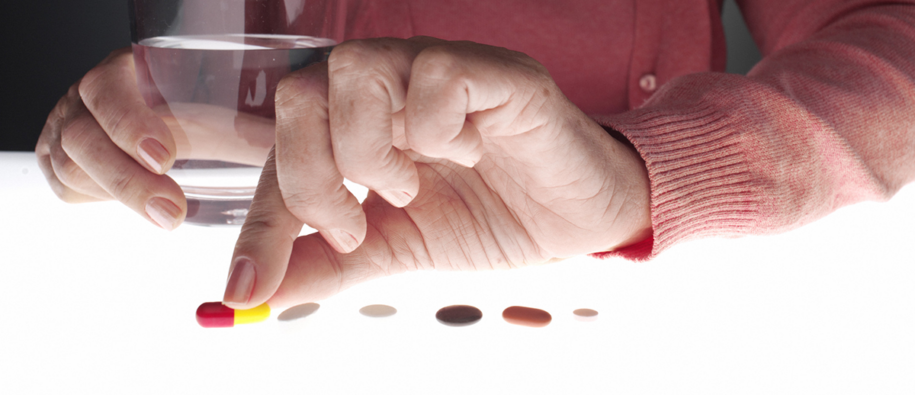Common Medications that Cause Dry Eye
Are Prescription Drugs Causing your Dry Eye Symptoms?
Surveys estimate that 4 in 5 American’s take one or more prescription medications a day. Medications that contain an exhausting list of potential side effects including the common symptoms of dry eye disease; itchy, burning, dry, red eyes. Is it possible one of your prescription drugs be causing your dry eye symptoms? Below we are going to explore the four types of prescription medications that are commonly known to cause or contribute to dry eye symptoms.
Antihistamines & Nasal Decongestant Sprays
Antihistamines are used as a common treatment for allergy and cold symptoms. Some of the most common types of antihistamines include Allegra, Benadryl, and Claritin. While these medicines are effective for relieving sinus pressure and nasal congestion, they also reduce the tear film keeping our eyes hydrated, causing dryness and redness. If you need to use antihistamines or nasal decongestant spray, and find yourself experiencing dry eye symptoms, add Moist Heat Therapy to your treatment regimen. The easy-to-use Thermalon Dry Eye Compress delivers a deep penetrating moist heat stimulating healthy, natural eye hydration.
Blood Pressure-Lowering Drugs
WebMD recently reported that nearly 30% of Americans have high blood pressure. This is an alarming number of individuals potentially taking Diuretics, Beta Blockers, and other blood pressure-lowering drugs. These medications are intended to remove excess water and sodium from your body—and by doing so—reduce the stimulus to the tear glands causing dryness and inflammation. If you believe blood pressure medication could be causing your dry eye symptoms, try applying a warm eye compress 1-2 times a day to encourage natural tear production and reduce inflammation.
Antidepressant & Parkinson’s Medications
Any prescription medication with a nerve-inhibiting quality has the potential to cause dry eye symptoms. Antidepressants, Psychosis, and Parkinson’s Medications block the transmission of certain nerve impulses and can intercept signals from the brain to produce tears and keep eye adequately hydrated. Patients using these medications and experiencing the symptoms of dry eye can add Moist Heat Therapy to their daily routines to stimulate natural tear production and moisture dry, itchy eyes.
Hormone Replacement and Oral Contraceptives
One study found that women taking a hormone replacement, particularly, estrogen, are significantly more likely to experience the symptoms of dry eye. While the correlation between hormones and dry eye remains unclear, it is statistically more likely that women taking these types of medications will develop the early symptoms dry eye disease. Moist Heat Therapy can help relieve pain and discomfort caused by dry, itchy eyes. Use the Thermalon Dry Eye Compress 1-2 times a day for maximum efficacy.
